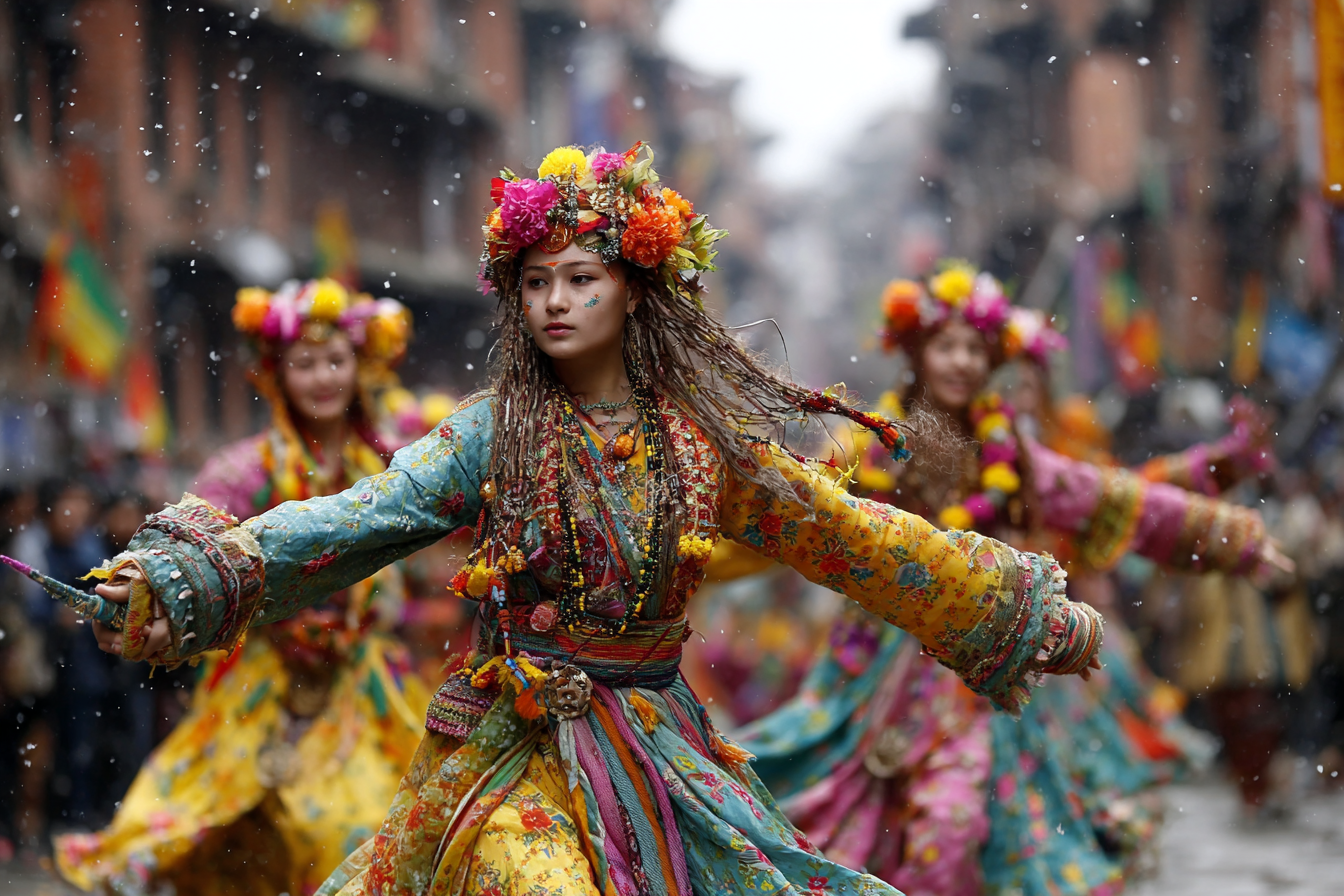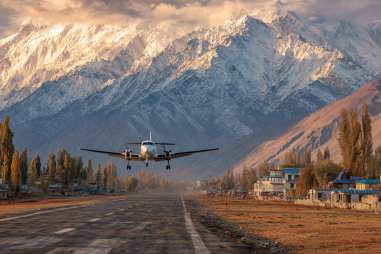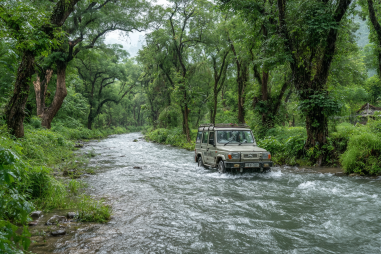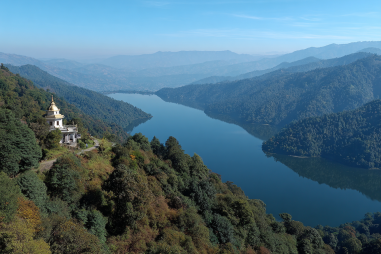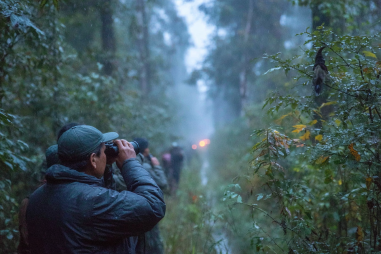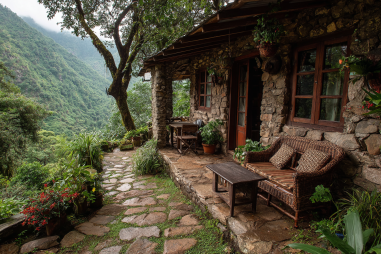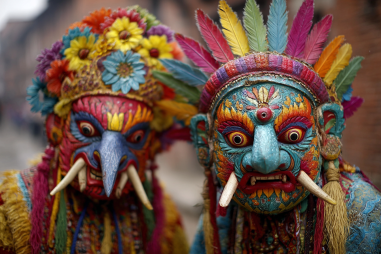Gorkha, a historical district nestled in the heart of Nepal, is much more than its stunning landscapes and legendary palaces. It is a vibrant hub of cultural festivals that truly bring the spirit of the region to life. Each festival in Gorkha is a colorful celebration filled with rich traditions, heartfelt rituals, music, dance, and an overwhelming sense of community. Whether you’re a traveler seeking authentic cultural encounters or simply curious about Nepal’s diverse heritage, Gorkha’s festivals offer a deep dive into its living traditions.
The Cultural Mosaic of Gorkha
Gorkha’s cultural landscape is beautifully diverse thanks to its multi-ethnic population. Communities such as Gurungs, Magars, Brahmins, and Chhetris call this area home, each with their own unique customs and festival styles. This diversity makes Gorkha a cultural melting pot where festivals are not only a time for celebration but also for the preservation and expression of age-old identities and stories. Through festivals, the people of Gorkha showcase their respect for ancestors, nature, and spirituality, weaving a complex tapestry of rituals and community activities that endure across generations.
Major Festivals in Gorkha You Should Experience
When we talk about Gorkha cultural festivals, several key celebrations stand out for their popularity and traditional importance.
Ghatu Festival
One of the most mesmerizing festivals of the Gurung community, the Ghatu Festival, is dedicated to the goddess Ghatu and tells stories of love and sacrifice through traditional folk dances performed mainly by young women. This festival typically occurs in the spring and is marked by haunting melodies, intricate costume changes, and trance-like dance performances that captivate both locals and visitors.
Buddha Jayanti
Buddha Jayanti celebrates the birth, enlightenment, and death of Lord Buddha and holds considerable significance in Gorkha due to its historical Buddhist influences. The festival includes prayer gatherings, meditation sessions, and special rituals in monasteries. It’s a serene and spiritual time that offers insight into the Buddhist practices still prevalent in Gorkha.
Tihar Festival
Also known as the Festival of Lights, Tihar is celebrated with great enthusiasm across Nepal, including Gorkha. It honors different animals on specific days, including crows, dogs, and cows, followed by worship of Lakshmi, the goddess of wealth. Homes and streets are adorned with oil lamps and colorful rangoli decorations, creating a magical atmosphere of joy and reverence.
When to Attend and Why These Festivals Matter
Festival dates in Gorkha mostly follow the lunar calendar, so exact dates vary each year. For example, Ghatu is celebrated in the spring months of Chaitra and Baisakh (March–May), Buddha Jayanti typically falls in April or May, while Tihar is usually celebrated in October or November. Participating during these times allows visitors to witness authentic rituals and community life.
Each festival holds deep symbolic significance:
- Ghatu: honors ancestral spirits and tells heroic tales through dance.
- Buddha Jayanti: celebrates enlightenment and promotes peace.
- Tihar: emphasizes gratitude and respect for nature’s creatures and wealth.
Through these celebrations, locals renew their connection with history, religion, and each other.
What to Expect: Activities and Performances
Gorkha’s festivals are spectacles filled with dynamic performances and community participation. You can expect to see traditional dances like the Ghatu dance, where performers enter trance states, vivid masks and costumes, and musical performances featuring traditional instruments such as the madal and sarangi. Processions are common, accompanied by chanting and the lighting of butter lamps or candles.
In addition to dance and music, many festivals include ritual sacrifices, worship ceremonies, and storytelling that convey myths and moral lessons. These activities highlight local beliefs about the divine, nature, and society. It’s an immersive sensory experience that connects visitors closely with the local way of life.
Respectful Participation for Visitors
If you’re planning to attend a festival in Gorkha, it’s important to approach these events with respect and sensitivity. Here are some tips to keep in mind:
- Always ask permission before photographing people, especially during rituals.
- Dress modestly to honor religious customs.
- Follow local guidance about where to stand or sit during performances.
- Participate only where invited; observe quietly if unsure.
- Be mindful of the sacred spaces and avoid disrupting ceremonies.
Embracing the spirit of respect not only enriches your experience but also fosters goodwill between visitors and local communities.
A Taste of Gorkha: Festive Food and Crafts
One of the best parts of cultural festivals is the opportunity to savor local flavors and admire traditional crafts. During Gorkha’s festivals, communal feasts often feature dishes like sel roti (a sweet, ring-shaped rice bread), kwati (mixed bean soup), and gundruk (fermented leafy greens), offering a delicious insight into Nepali cuisine.
Alongside food, festivals are vibrant markets for local handicrafts including handwoven textiles, bead jewelry, and wood carvings. These crafts not only serve as beautiful souvenirs but also support local artisans and preserve traditional skills that have been passed down through generations.
Practical Tips for Traveling to Gorkha During Festivals
Planning to visit Gorkha during its vibrant festivals can be a truly rewarding experience. Here are some travel tips to keep in mind:
- Book accommodations early: Festival seasons attract many visitors, so staying in advance is wise.
- Local transport: Roads may be busy or partially closed for events; consider walking or using local guides.
- Health precautions: Stay hydrated and carry necessary medication; festival crowds can be large and lively.
- Respect cultural norms: Learn basic Nepali greetings and cultural etiquette to connect better with locals.
- Weather: Check seasonal weather conditions to pack appropriately as Gorkha can have varied climate zones.
These tips help ensure a smooth and enjoyable festival experience that leaves lasting memories.
Festivals: The Heartbeat of Gorkha’s Identity
Experiencing Gorkha’s cultural festivals is like stepping into the soul of the region. They offer visitors more than just entertainment—they provide a rare window into the values, history, and spirit of the people who live there. Through music, dance, food, and rituals, these festivals keep alive a rich cultural heritage that continues to thrive despite the pressures of modernization.
Whether it’s the mystical trance dances of Ghatu or the glowing lamps of Tihar illuminating the night, each celebration tells a story rooted in faith, community, and resilience. For travelers seeking genuine cultural immersion, Gorkha’s festivals are an unforgettable invitation to celebrate life in all its vibrant complexity.

